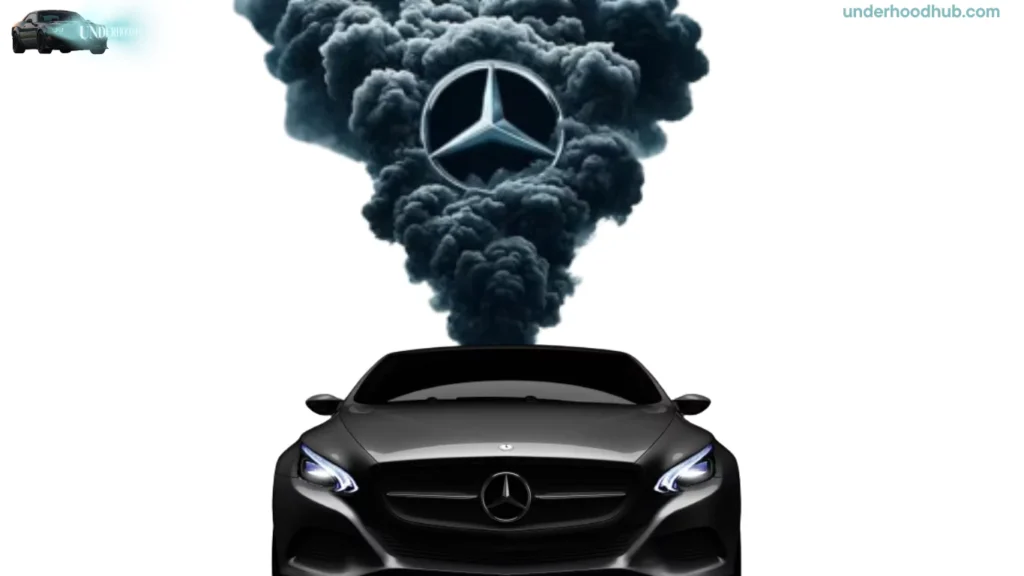Mercedes-Benz, an iconic brand known for its diesel vehicles, has recently found itself at the center of a controversy regarding emissions cheating accusations similar to Volkswagen’s scandal and related legal battles that threaten to shake up the automotive industry. This article investigates this topic further by delving into its origins, complexity and potential repercussions.

The Allegations: Defeat Devices and Misrepresented Emissions
At the core of Mercedes’ claims lies their use of “defeat devices.” These software programs allegedly helped manipulate emissions readings during laboratory testing to make these vehicles appear cleaner than they are in actual world driving conditions. According to allegations against them, this led them to emit much higher levels of harmful nitrogen oxides (NOx), exceeding regulatory limits and contributing significantly more air pollution.
This scandal first surfaced in 2016 after investigations revealed the presence of such devices in Mercedes vehicles across various European markets. As a result, recalls and regulatory fines ensued, along with lawsuits filed by consumers who felt misled regarding their car’s environmental performance.
The Legal Landscape: Class Actions and Group Litigation
The legal landscape of Mercedes diesel claims differs significantly depending on where one resides; it remains complex and ever-evolving. In the US, for example, a class action lawsuit filed against Daimler AG as the owner of Mercedes-Benz yielded a settlement agreement worth $2.2 billion by 2020; however, other jurisdictions — mainly Europe — still present challenges that require resolution.
In December 2023, a significant development occurred in the UK. The High Court decided that Mercedes and two other manufacturers should proceed as “lead claims” in group litigation involving more than 1.2 million vehicle owners across 16 brands. This decision opens the way for potentially more significant collective actions against carmakers accused of emissions cheating.
Beyond Compensation: Reputational Damage and Industry Implications
The Mercedes diesel claim goes far beyond providing individual compensation to affected owners. It has caused irreparable harm to its image, raising serious questions of corporate ethics and environmental responsibility. Additionally, its fallout has implications for all automotive industries – it shows why stricter regulations and enforcement measures must be introduced to avoid similar situations in future.
Current Status and Future Outlook
As of February 2024, the Mercedes diesel claim is moving forward. A UK group litigation trial against Mercedes and two other manufacturers is set for February 2025, likely setting a precedent for similar cases elsewhere. Although legalities and regional variances still play out here, it serves as a reminder of growing scrutiny surrounding emissions standards and corporate accountability within the automotive industry.
Unanswered Questions and Ongoing Scrutiny
There are still several unanswered questions: Will the trial result in additional settlements or substantial compensation for claimants? Will Mercedes’ case impact similar suits against other brands, or will stricter regulations and enforcement emerge as a response?
The Mercedes diesel claim is a cautionary tale for the automotive industry, illustrating the adverse outcomes of altering emissions levels to deceive consumers and falsify data. Legal battles continue, and new developments emerge – one thing is sure: its aftermath will loom for some time, yet further scrutiny and greater industry transparency and accountability will likely emerge as we strive towards cleaner transportation solutions.
Who is affected by the Mercedes diesel claim?
Owners or lessees of certain Mercedes-Benz diesel models equipped with “defeat devices,” typically produced between 2008 and 2018, are potentially affected. Specific models and affected years vary depending on the jurisdiction.
What are the allegations against Mercedes?
Mercedes is accused of installing software programs in certain diesel vehicles that manipulate emissions readings during laboratory testing, making them appear cleaner than they are in real-world driving. This allegedly resulted in higher NOx emissions exceeding regulations.
What is the current status of the claim?
A class-action lawsuit in the US resulted in a $2.2 billion settlement in 2020. In Europe, a significant group litigation case involving Mercedes and other manufacturers, covering over 1.2 million vehicles, is scheduled for trial in February 2025.
Can I still join the claim?
The eligibility depends on the specific legal proceedings in your jurisdiction. In some cases, deadlines to join may have passed, while others might still be open. Consult legal resources specific to your region for accurate information.
What kind of compensation could I receive?
Compensation details vary depending on the specific claim and its outcome. It could involve financial compensation, repairs or modifications to vehicles, or other remedies determined by the court.
Are there any risks involved in joining the claim?
Joining a class action or group litigation typically involves minimal risk, as legal fees are often contingent on success. However, it’s essential to understand the terms and potential implications before joining.
What are the broader implications of this claim?
The Mercedes diesel claim raises concerns about corporate ethics, environmental responsibility, and stricter regulations to prevent similar emissions cheating in the future. It also highlights the need for improved transparency and accountability within the automotive industry.






